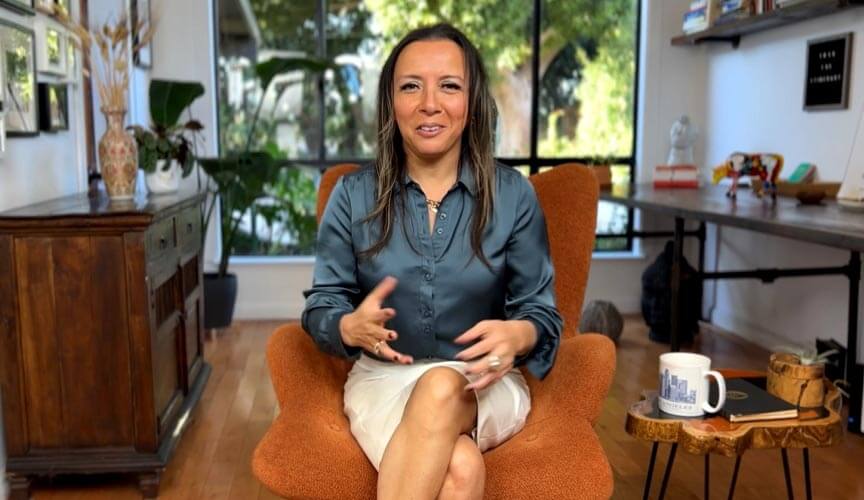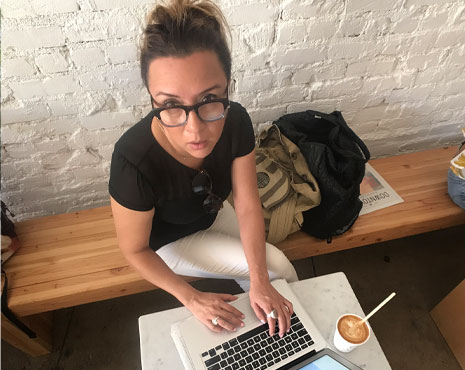First… Does Coaching work?
Coaching is a true catalyst for transforming lives.
According to the International Coach Federation (ICF)…
Over 70% of individuals who have participated in coaching reported improved work performance, communication skills, and interpersonal effectiveness.
80% reported increased self-confidence.
An outstanding 99% were satisfied with the experience, with many attributing their success in achieving personal or professional goals to coaching.
Lastly, the American Psychological Association (APA) notes that coaching can help people manage stress, improve work-life balance, and enhance overall well-being.
A quick story
I’ll tell you a story from when I was the client, before becoming a Coach.
I remember this particular session that completely changed how I see coaching, or therapy for that matter.
I had already been in this coaching relationship for a minute and I was very happy, not only about the progress I was making but also because the actual sessions were very productive and were leaving me in a very positive mood every week.
I remember later during the day, trying to process and understand everything we discussed.
I found it funny that I was usually looking forward to my next session. I’d even arrive 10 minutes before to sit in the waiting room.
But, there is always that day when all the unexpected happens, all at the same time. You start running late to everything and even manage to develop a little anxiety to go with it.
That day I made it to my session a couple of minutes late, which was fine, and ended up having a normal session after a rough beginning to get it going. Probably even wasting a couple of minutes on the weather, which I hate.
When I walked out, I quickly resumed my day, or my attempt to catch up with it.
Later that afternoon, I noticed something:
There was no feel-good feeling after the session. And the things we discussed felt like a fading dream from the night before.
Even though I couldn’t find a reason for it or responsibility on either side, I concluded it was just not a good coaching session.
It took me a couple of more sessions after that to realize what happened…
You know, besides having an amazing coach.
It’s a Co-active Effort
Let me explain…
Read these testimonials from some of my clients (Don’t look at me like that, I have a point).
“My family is happier, my career is soaring…”
“Andrea revealed my strengths, limitations, and perspective on how to leverage each to create an authentic life and career…”
“Each call is like a giant beam of warm sunshine on my heart. She keeps me following my path…”
They sound like pretty bold statements, don’t you think?
And they’re true. I know. I was there.
But, why don’t I mind sharing this without all the weird feelings that come with blowing your own horn?
Because I don’t take full credit for it.
This is a co-active effort, a partnership.
Believe me, no matter how many degrees and certifications your coach or therapist has, if you sit there in silence every week, nothing happens.
Set an Intention
Sitting on the opposite chair now I can tell you that, without a clear intention, your session can easily turn into a casual conversation.
That’s what your friends are for.
When it comes to coaching or therapy, you should have a clear intention, a goal, an agenda, a question…
Just go in there knowing what you want to walk away with after the next hour.
I always recommend this to my clients, especially when we are starting the relationship.
Just ask yourself this simple question:
“If I fast forward four or five sessions from now, how do I want to feel/be _____________ in this specific area ____________ of my life, because I value ______________.”
For example, I have a client who is doing her residency as a cardiologist and this is her goal:
“If I fast forward four or five sessions from now, I want to feel more confident in my work, because I value success and ambition.”
This forward-looking perspective made a huge difference!
While coaching doesn’t promise instant and drastic changes in every aspect of life, focusing on one area for improvement allowed her to connect with how she wanted to feel and why it matters to her.
Doing this groundwork will give your coach a clear understanding of your aspirations and motivations.
Creating change may not happen all at once, but identifying a specific area for transformation and understanding the desired feelings can set the foundation for success.
How to prepare for an effective coaching session

Here are some tips on how to prepare for your next coaching session:
Set clear goals
Identify specific goals or challenges you want to address during the coaching session. Clearly define what you hope to achieve or gain insights into.
Reflect on progress
Before your next session take 15 minutes to reflect on any progress or changes since the last coaching session. Consider what has worked well and any failures, everything is learning and important data for the journey.
Bring relevant materials
If there are documents, reports, or materials relevant to your coaching goals, have them ready for reference. Don’t be shy! This could include project plans, feedback, or personal assessments.
Be open and honest
Approach the coaching session with vulnerability and honesty. Your coach needs to be aware of past and present events, addictions, conditions, and/or ways of thinking that may influence your life now.
Share your thoughts, feelings, and concerns openly to maximize the impact of the coaching conversation.
Take the lead
Communicate your expectations for the coaching session. If there are specific areas you’d like to focus on or particular coaching techniques you find helpful, let your coach know.
Uphold your part by (1) leading the session, (2) asking for what you want, (3) letting your coach know what is working/not working, and (4) what you want more of in our coaching relationship.
Come prepared with questions
Prepare a list of questions or topics you would like to discuss. This ensures that you cover all the important areas you have in mind.
Dig deeper, in between sessions have a journal to write down any insights that might come up that you want to discuss with your coach.
Be ready to explore new territory
Consider potential solutions or actions you could take based on the coaching discussion. Be open to exploring new perspectives and strategies.
Create a quiet/sacred environment
This is YOUR time! Choose a quiet and comfortable space for the coaching call where you can focus without distractions. Ensure good audio quality and minimize background noise.
Conclusion
By following these tips, both the coach and coachee can contribute to a more effective and enriching coaching experience. Preparation ensures that coaching sessions are focused, and goal-oriented, and lead to meaningful insights and positive outcomes.
Image credit: Andrea Piacquadio, cottonbro studio


0 Comments